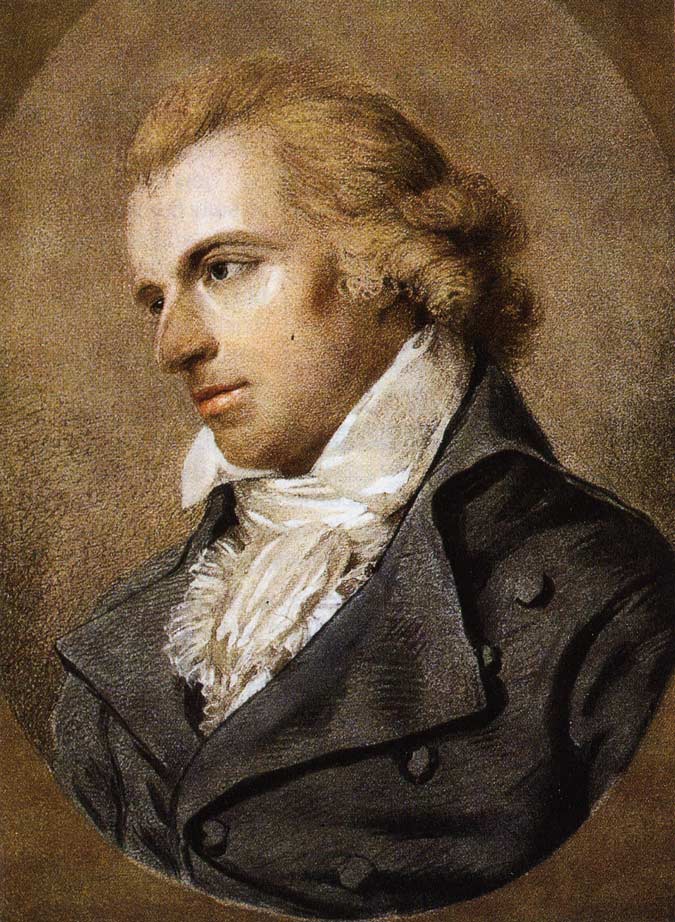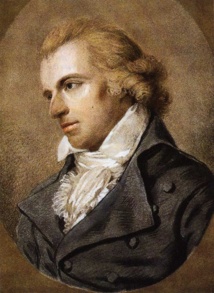The nearly three-hour-long picture by veteran director for film and television Dominik Graf is one of four German contenders for the festival's Golden Bear top prize to be awarded on February 15.
Schiller makes the acquaintance of the penniless aristocrats Charlotte and Caroline while he is still a rising literary star in the shadow of Johann Wolfgang von Goethe.
Caroline, a bold and exuberant woman who is trapped in an unhappy marriage of convenience to the wealthy Friedrich von Beulwitz, has writing ambitions of her own and the three engage in lively debates about the looming French Revolution as their friendship deepens.
Schiller and Caroline become lovers but she eventually asks him to wed the more reserved Charlotte to keep him in her own orbit and assure her sister is not consigned to her own unhappy fate in marriage.
- Jealousy and resentment -
Their love triangle established, Schiller takes care to treat the sisters equally, even writing them identical letters.
But when Charlotte bears Schiller a son and Caroline later falls pregnant, their carefully balanced threesome tips into petty jealousy and resentment.
Graf said he was drawn to the material because of the mythic role Schiller plays in German culture, and for the insights it offered into his espoused ideals.
"At the heart of the story is an unbelievable tenderness," he told reporters.
"All three are in love and from the beginning there was a spiritual element -- of course there was an erotic element too but the goal was for their hearts to beat as one, a kind of transmigration of souls."
Graf said that the unusual length of the film gave him a canvas on which to develop three rich characters at a pace in keeping with their time.
"If you had sped things up it would have been a kind of pseudo-modernity," he said after a packed press screening that met with applause.
"Words themselves were meant to play the leading role in the film."
Far from a bodice-ripper, the film shows the three characters composing letters to each other aloud on screen, and reading passages of their novels and essays aloud.
The picture, however, will be shortened for its cinematic release and divided into two parts for broadcast on public television.
Graf said he had been forced to take liberties with history for the sake of the drama but "without burying the facts".
Caroline von Beulwitz, played by young star Hannah Herzsprung, went on to publish successful books.
She destroyed all of her correspondence with Schiller before she died but one ardent letter survived on which the film is partially based.
--------------------------------------------------------------------
Schiller makes the acquaintance of the penniless aristocrats Charlotte and Caroline while he is still a rising literary star in the shadow of Johann Wolfgang von Goethe.
Caroline, a bold and exuberant woman who is trapped in an unhappy marriage of convenience to the wealthy Friedrich von Beulwitz, has writing ambitions of her own and the three engage in lively debates about the looming French Revolution as their friendship deepens.
Schiller and Caroline become lovers but she eventually asks him to wed the more reserved Charlotte to keep him in her own orbit and assure her sister is not consigned to her own unhappy fate in marriage.
- Jealousy and resentment -
Their love triangle established, Schiller takes care to treat the sisters equally, even writing them identical letters.
But when Charlotte bears Schiller a son and Caroline later falls pregnant, their carefully balanced threesome tips into petty jealousy and resentment.
Graf said he was drawn to the material because of the mythic role Schiller plays in German culture, and for the insights it offered into his espoused ideals.
"At the heart of the story is an unbelievable tenderness," he told reporters.
"All three are in love and from the beginning there was a spiritual element -- of course there was an erotic element too but the goal was for their hearts to beat as one, a kind of transmigration of souls."
Graf said that the unusual length of the film gave him a canvas on which to develop three rich characters at a pace in keeping with their time.
"If you had sped things up it would have been a kind of pseudo-modernity," he said after a packed press screening that met with applause.
"Words themselves were meant to play the leading role in the film."
Far from a bodice-ripper, the film shows the three characters composing letters to each other aloud on screen, and reading passages of their novels and essays aloud.
The picture, however, will be shortened for its cinematic release and divided into two parts for broadcast on public television.
Graf said he had been forced to take liberties with history for the sake of the drama but "without burying the facts".
Caroline von Beulwitz, played by young star Hannah Herzsprung, went on to publish successful books.
She destroyed all of her correspondence with Schiller before she died but one ardent letter survived on which the film is partially based.
--------------------------------------------------------------------









 Home
Home Politics
Politics











